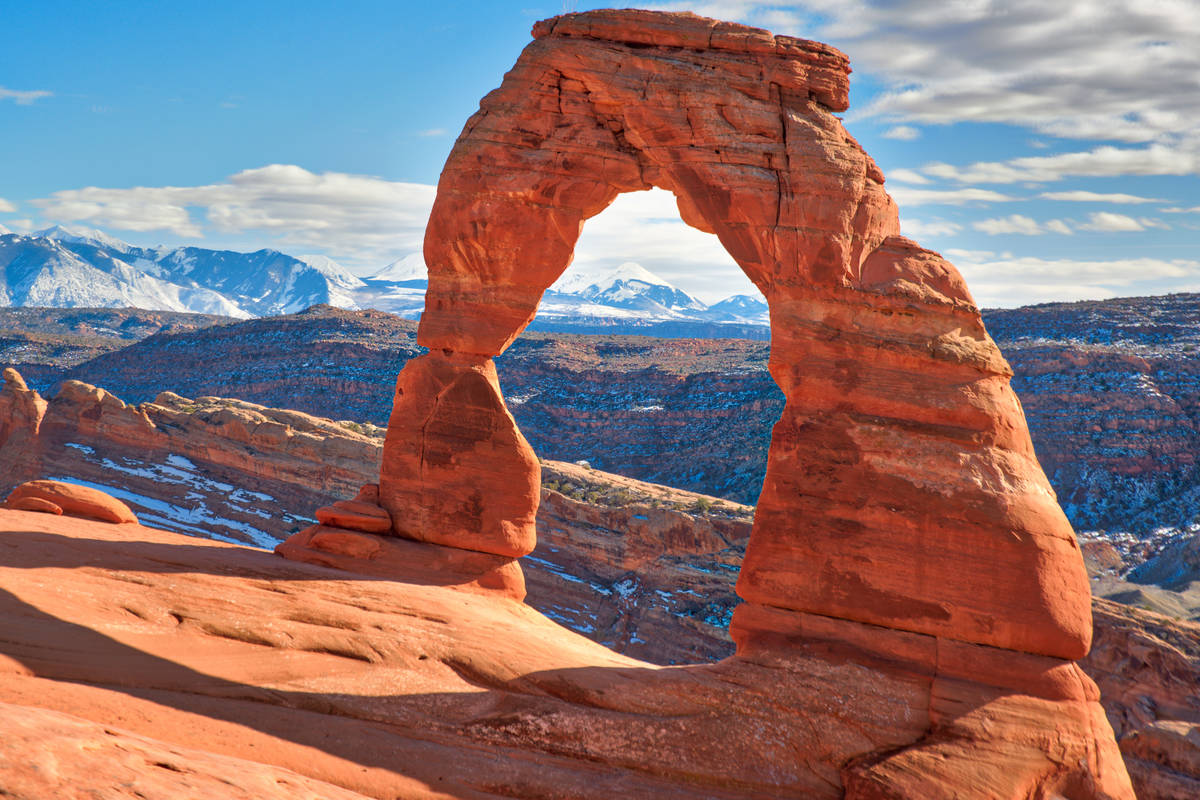Arches, other national parks close during coronavirus crisis

SALT LAKE CITY — Three more of America’s most popular national parks have closed their gates as pressure mounts on superintendents to prevent crowded trails that could lead to more spread of the coronavirus even as the Trump administration sticks to its decision to waive entrance fees at the parks.
Glacier in Montana and Arches and Canyonlands in Utah announced their decisions to close Friday night just days after several other well-known parks such as Yellowstone, Grand Teton and the Great Smoky Mountains did the same.
Visitors travel to Arches and Canyonlands to hike red rock trails that lead to picturesque rock arches and canyons located just outside the small tourist town of Moab, Utah — where city leaders and regional health leaders this week sent letters to the National Park Service pleading for the closure of the parks. The health department had already banned local hotels from allowing tourists to stay after seeing continued crowds in town and the parks even as the virus spread across the United States.
In a tweet announcing the closures, Arches and Canyonlands said the decision to close was made in response to local health officials.
Park staff was at risk as visitors kept coming to the parks, including about 700 cars per day last weekend, the Southeast Utah Health Department Health department said in a letter Wednesday to the park service. Moab’s small hospital has only two ventilators — vital for patients with severe cases of COVID-19 — and no intensive care rooms, the letter said.
Glacier National Park Superintendent Jeff Mow said in a statement Friday night the decision was made after listening to concerns from local leaders and was based on current health guidance. The Montana park known for its towering snow capped mountains and valleys near the Canadian border heard from gateway communities in Flathead and Glacier counties, along with the Blackfeet Indian Reservation and the state.
Nearly two weeks ago, Interior Secretary David Bernhardt announced he would waive entrance fees to give people outdoor spaces to recreate, while authorizing park superintendents to make their own decisions about what’s needed to adhere to recommendations form the Centers for Disease Control and Prevention.
“This small step makes it a little easier for the American public to enjoy the outdoors in our incredible National Parks,” Bernhardt said in a news release on March 18.
More closures may be coming
Nicholas Goodwin, a spokesman for Bernhardt, said Thursday the decision was meant to give a financial break to those visitors who had decided they wanted to go, not to draw people outdoors and together on vistas and trails as coranavirus deaths and illnesses grow. The agency is deciding whether to shut down individual sites on a park-by-park basis, in consultation with state and local health officials, he said.
Great Smoky Mountains National Park on the border of North Carolina and Tennessee was one of those whose request to close was granted by the Interior Department earlier this week.
The number of visitors there surged last week compared to the previous year’s figures despite infection risks, with about 30,000 people entering the park each day. Despite efforts at Smoky Mountains park to protect staff and visitors from COVID-19, including closing restrooms and visitor centers, the park found it impossible to keep people from crowding together in popular spots, spokeswoman Dana Soehn said. The day after the closure announcement, park officials learned that an employee had tested positive.
For most people, the new coronavirus causes mild or moderate symptoms, which can include fever and cough but also milder cases of pneumonia, sometimes requiring hospitalization. The risk of death is greater for older adults and people with other health problems.
Many parks that remain open have closed shuttles, campgrounds, visitor centers and some trails to prevent the spread of COVID-19.
At Zion National Park in Utah, campgrounds and part of a popular trail called Angel’s Landing that remained crowded with people over the weekend are closed.
In Arizona, local governments and the Navajo Nation are waiting for an answer on their request earlier this week for federal officials to shut down Grand Canyon National Park as cases of the coronavirus grow in surrounding areas. The park has already closed shuttles, river trips and lodges.
The National Parks Conservation Association, a nonprofit group that advocates on park policy issues, called the administration’s decision to keep the Grand Canyon open “beyond reckless.”